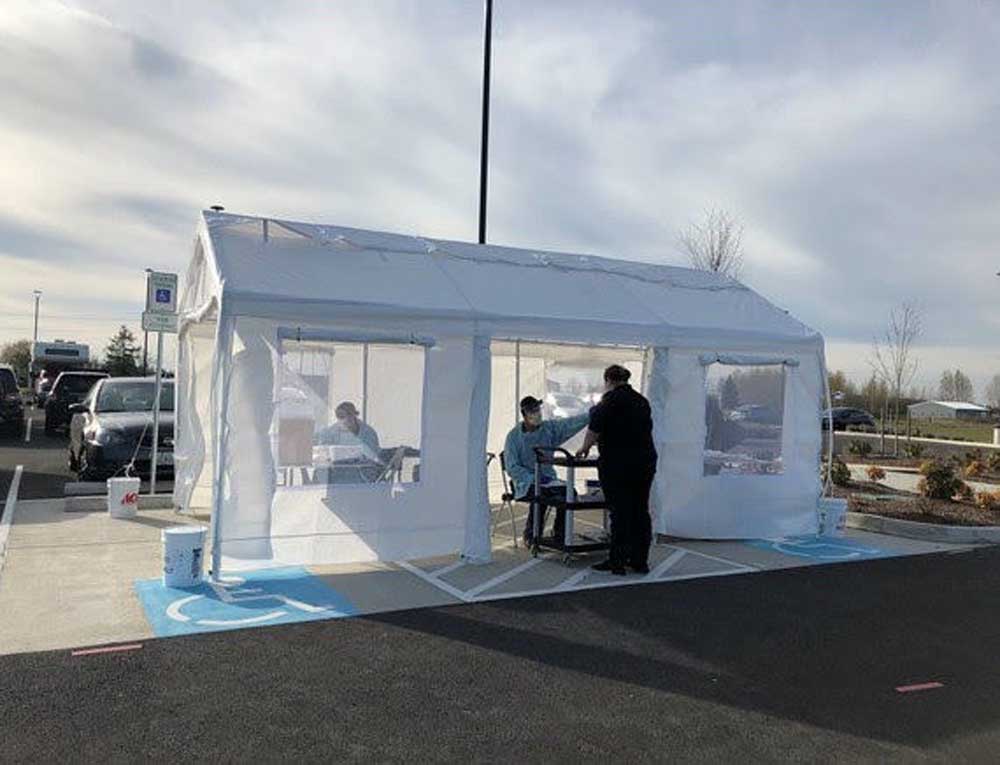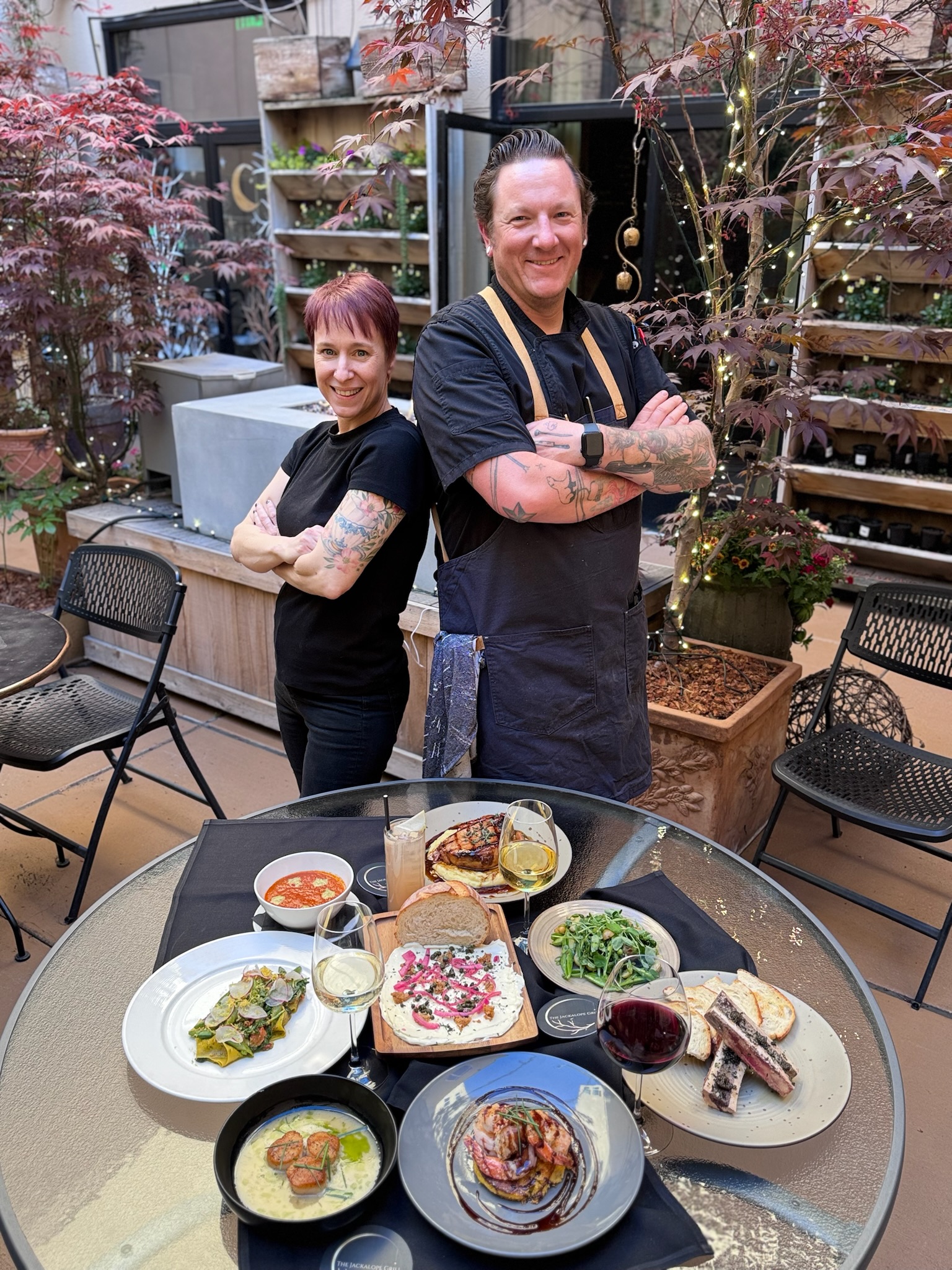State seeks health care volunteers to support COVID-19 response
Published 2:00 pm Wednesday, May 20, 2020

- Health care professionals staff a temporary tent. The Oregon Health Authority is asking more working and retired health care professionals to join a registry of volunteers to aid in the COVID-19 response and future emergencies.
PENDLETON — As Oregon residents work to get back to some sort of normalcy, the Oregon Health Authority is increasing efforts to recruit health care professionals to join the State Emergency Registry of Volunteers across the state.
Since March, the registry, known as SERV-OR, has added more than 800 volunteers, strengthening OHA’s ability to contain COVID-19 cases and building the capacity of the volunteer program to respond to future emergencies.
The effort is picking up steam in Eastern Oregon.
“There has been a significant increase in people volunteering for different regions across the state for the Eastern Oregon Medical Reserve Corps (EOMRC) and for Serve Oregon,” said Jason Yencopal, emergency management director for Baker County and the unit commander of the Eastern Oregon Medical Reserve Corps. “And we’ve seen that increase in Eastern Oregon, too.”
Yencopal said about 30 volunteers have been added around the seven-county region that makes up the EOMRC, bringing the total volunteers in the region to about 90. Having volunteers spread out in all of the counties under the EOMRC umbrella helps cut down on response times if volunteers are needed to travel from, say, Pendleton to Burns, Yencopal said.
“If we only have volunteers in three of the seven counties, we’re always pulling from those three,” he said. “If we can get them spread out all over the region, the drive time for volunteers to respond in the case of a severe outbreak would decrease and make our response time increase.”
The Oregon Health Authority is planning for volunteers to be a key part of the state’s COVID-19 recovery effort by supporting contact tracing, testing and community wellness campaigns, and studies of long-term community effects and mass vaccination programs. Volunteers who sign up in the coming days will have the opportunity to train and deploy quickly.
“The objective is to get enough contact tracers for the counties, and then whether it’s county or state, we have enough contact tracers to support positive cases in order to be able to go through that process to keep people safe and to reduce the spread,” Yencopal said.
Getting the word out to potential volunteers in Eastern Oregon has been productive.
“It’s been positive,” said Ray Denny, public safety director for the Confederated Tribes of the Umatilla Indian Reservation and a manager for the EOMRC.
The EOMRC is a group of doctors, nurses, emergency medical technicians and residents around Eastern Oregon. The organization falls under the State Emergency Registry of Volunteers. The Corps supports local county health departments, area hospitals, emergency management offices and local response teams in a seven-county area: Gilliam, Morrow, Umatilla, Union, Wallowa, Grant and Baker.
In addition to helping with disease outbreaks, SERV-OR volunteers are ready to respond to other emergencies and natural disasters, such as flooding, wildfire and earthquakes. A couple of events the EOMRC has been involved with, Yencopal said, include the solar eclipse in 2017 and supporting the Red Cross shelter during the February flooding in Umatilla County.
Health care professionals can register to volunteer with SERV-OR at SERV-OR.org.
“Oregon’s health care workers are our most valuable asset in the fight against COVID-19,” said OHA Director Patrick Allen. “Their skills and energy are saving lives every day, in every part of the state. SERV-OR provides another opportunity to give back and support response efforts while connecting volunteers to high-quality training.”
While the backbone of the EOMRC are health care volunteers, Denny said there is a need for volunteers without a medical background.
“Sometimes we just need somebody there to help direct people. We don’t want to take a nurse and put them in that role unless we have to,” he said. “We’d rather have them be able to immunize or whatever we’re doing there. So, we would be looking for some regular volunteers as well.”
SERV-OR is Oregon’s roster of licensed physicians, nurses, pharmacists, Emergency Medical Technicians, behavioral health providers, respiratory therapists and other medical professionals who have registered to volunteer in response to local, state or federal emergencies.
“When our health care system was preparing for the worst of this, volunteer health care workers answered the call,” Oregon Gov. Kate Brown said. “I want to commend all our health care professionals and volunteers for their incredible work protecting the lives, safety, and wellness of Oregonians during this crisis.”






